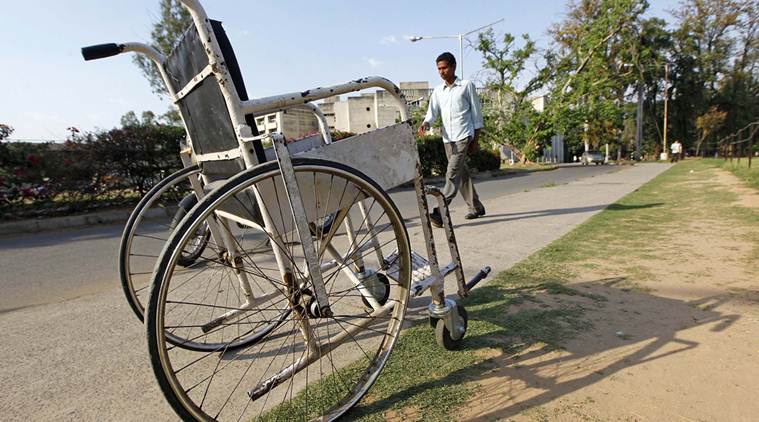Borders For Doctors
Medical Council of India guidelines are unfair to people with disabilities.

Last year, the National Trust of the Ministry of Social Justice and Empowerment, with the paediatrics department at AIIMS, held a training programme for doctors on the new scales to diagnose autism. (Representational image)
India celebrated a new law in December 2016 — the Rights of Persons with Disabilities Act — which extended the existing list of disabilities from seven to 21. Its first visible impact was seen last year when a candidate with thalassemia was denied NEET admission but the Supreme Court (SC) directed the government to grant her seat under the new law. Embarrassed by litigation and on the directions of the health ministry, an expanded committee on disability was constituted under the Medical Council of India (MCI) which submitted its recommendations on June 5.
Surprisingly, a psychiatrist from AIIMS framed the guidelines for dyslexia and recommended that candidates with this learning disability as well as those with autism are not suitable to pursue medical education under the disability quota. Usually, a paediatrician, psychologist and neurologist see dyslexic candidates but they were never consulted. Last year, the National Trust of the Ministry of Social Justice and Empowerment, with the paediatrics department at AIIMS, held a training programme for doctors on the new scales to diagnose autism. But the MCI chose a psychiatrist to decide on the careers of candidates with dyslexia.
A young doctor in a rural hospital in World War II invented the first artificial kidney using sausage casings and orange juice cans. He went on to build the first artificial heart. We now recognise Willem Kolff as the father of artificial organs and pioneer of hemodialysis. He had dyslexia. Another doctor, Helen Taussig, founded the speciality of paediatric cardiology despite having severe dyslexia. Our new disability law provides reservation benefits to candidates with learning disabilities of 40 per cent or more. However, out of 110 students selected under the disability quota in the NEET exam this year, the Directorate of Medical Education, Mumbai, declared eight students with learning disabilities ineligible based on the recent MCI guidelines.
The eye expert of this committee warns that those with colour blindness should be aware of the severity of their deficiency and the kind of problems it may pose in the career they have chosen. I believe it is unethical to screen them but offer no guidance. Last year, in a historic decision, the SC said that those with colour blindness should not be discouraged from taking the MBBS exam. In 2017, my colleagues at UCMS published a detailed paper on how the colour blind can practise medicine safely. Sadly, they were not involved by the MCI in their committee but the apex court took note of their work.
I have locomotor disability but the MCI guidelines bar candidates with over 80 per cent of such disabilities to pursue medical education under the disability quota. The MCI itself has awarded their highest honour, the Dr BC Roy award, to Dr Suresh Advani. The President of India awarded him the Padma Shri and the Padma Bhushan. Advani is a hemato-oncologist but also a wheelchair user with disability above 80 per cent. As per the MCI’s own guidelines (both new and old), he is not “competent” enough to be a doctor.
Policymakers and doctors without the lived experience of having a disability must not assume and declare what we can and cannot achieve. The MCI committee, the assessment committee of the health ministry and the job identification committee of the social justice ministry must re-evaluate their guidelines and reconstitute their committees with the inclusion of doctors with disabilities.
The writer teaches at University College of Medical Sciences, Delhi, and is a disability rights activist. Views are personal
For all the latest Opinion News, download Indian Express App







































No hay comentarios:
Publicar un comentario